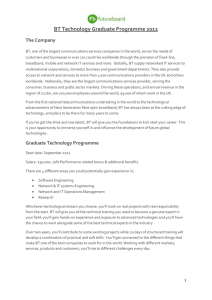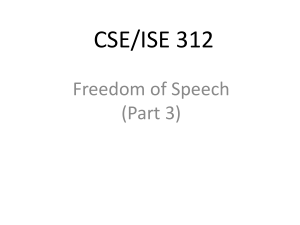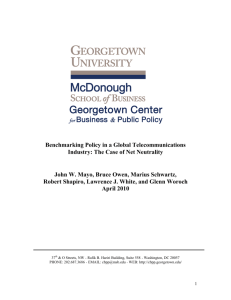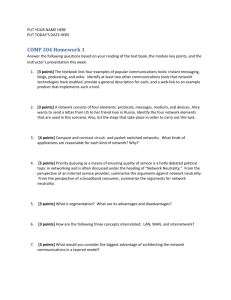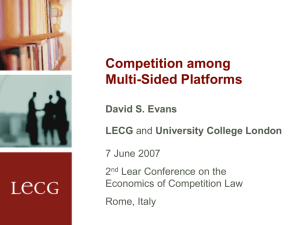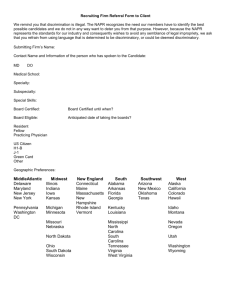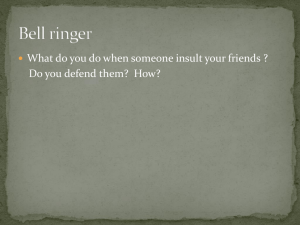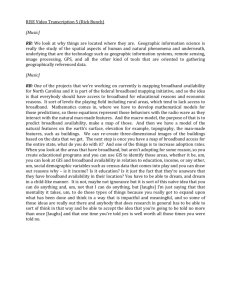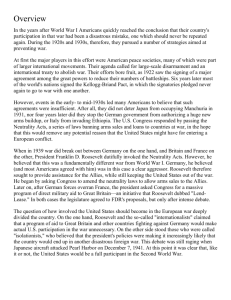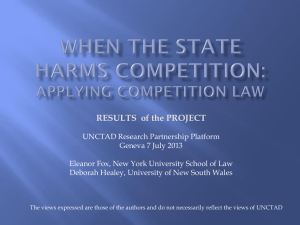Glenn Woroch Adjunct Professor of Economics University
advertisement
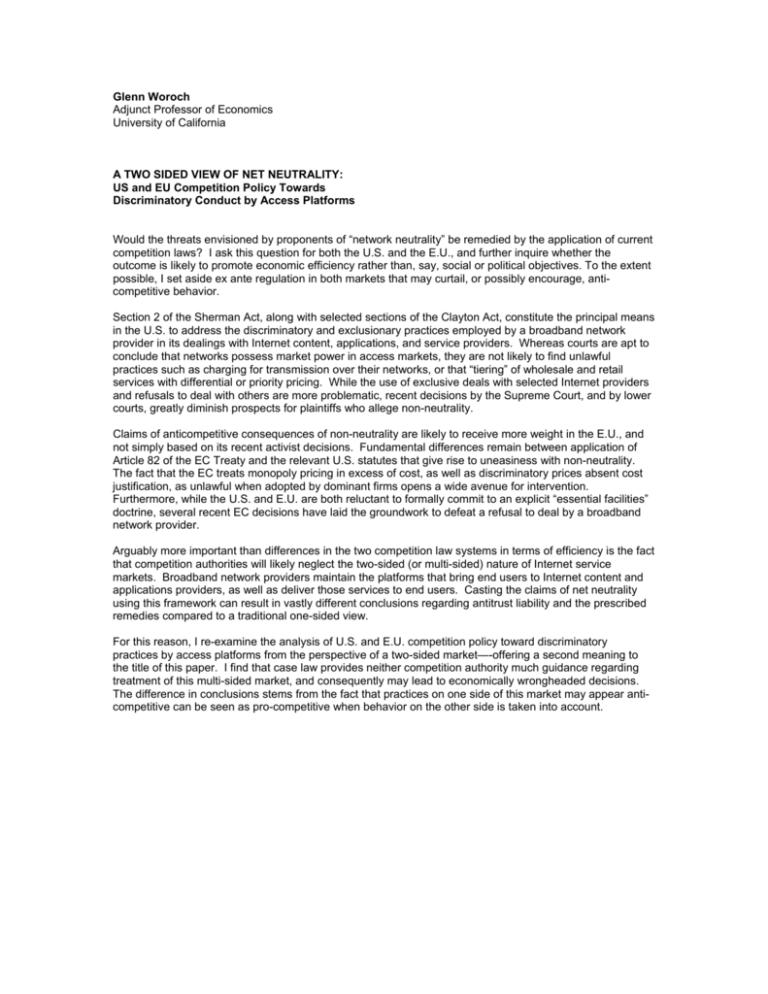
Glenn Woroch Adjunct Professor of Economics University of California A TWO SIDED VIEW OF NET NEUTRALITY: US and EU Competition Policy Towards Discriminatory Conduct by Access Platforms Would the threats envisioned by proponents of “network neutrality” be remedied by the application of current competition laws? I ask this question for both the U.S. and the E.U., and further inquire whether the outcome is likely to promote economic efficiency rather than, say, social or political objectives. To the extent possible, I set aside ex ante regulation in both markets that may curtail, or possibly encourage, anticompetitive behavior. Section 2 of the Sherman Act, along with selected sections of the Clayton Act, constitute the principal means in the U.S. to address the discriminatory and exclusionary practices employed by a broadband network provider in its dealings with Internet content, applications, and service providers. Whereas courts are apt to conclude that networks possess market power in access markets, they are not likely to find unlawful practices such as charging for transmission over their networks, or that “tiering” of wholesale and retail services with differential or priority pricing. While the use of exclusive deals with selected Internet providers and refusals to deal with others are more problematic, recent decisions by the Supreme Court, and by lower courts, greatly diminish prospects for plaintiffs who allege non-neutrality. Claims of anticompetitive consequences of non-neutrality are likely to receive more weight in the E.U., and not simply based on its recent activist decisions. Fundamental differences remain between application of Article 82 of the EC Treaty and the relevant U.S. statutes that give rise to uneasiness with non-neutrality. The fact that the EC treats monopoly pricing in excess of cost, as well as discriminatory prices absent cost justification, as unlawful when adopted by dominant firms opens a wide avenue for intervention. Furthermore, while the U.S. and E.U. are both reluctant to formally commit to an explicit “essential facilities” doctrine, several recent EC decisions have laid the groundwork to defeat a refusal to deal by a broadband network provider. Arguably more important than differences in the two competition law systems in terms of efficiency is the fact that competition authorities will likely neglect the two-sided (or multi-sided) nature of Internet service markets. Broadband network providers maintain the platforms that bring end users to Internet content and applications providers, as well as deliver those services to end users. Casting the claims of net neutrality using this framework can result in vastly different conclusions regarding antitrust liability and the prescribed remedies compared to a traditional one-sided view. For this reason, I re-examine the analysis of U.S. and E.U. competition policy toward discriminatory practices by access platforms from the perspective of a two-sided market—-offering a second meaning to the title of this paper. I find that case law provides neither competition authority much guidance regarding treatment of this multi-sided market, and consequently may lead to economically wrongheaded decisions. The difference in conclusions stems from the fact that practices on one side of this market may appear anticompetitive can be seen as pro-competitive when behavior on the other side is taken into account.
